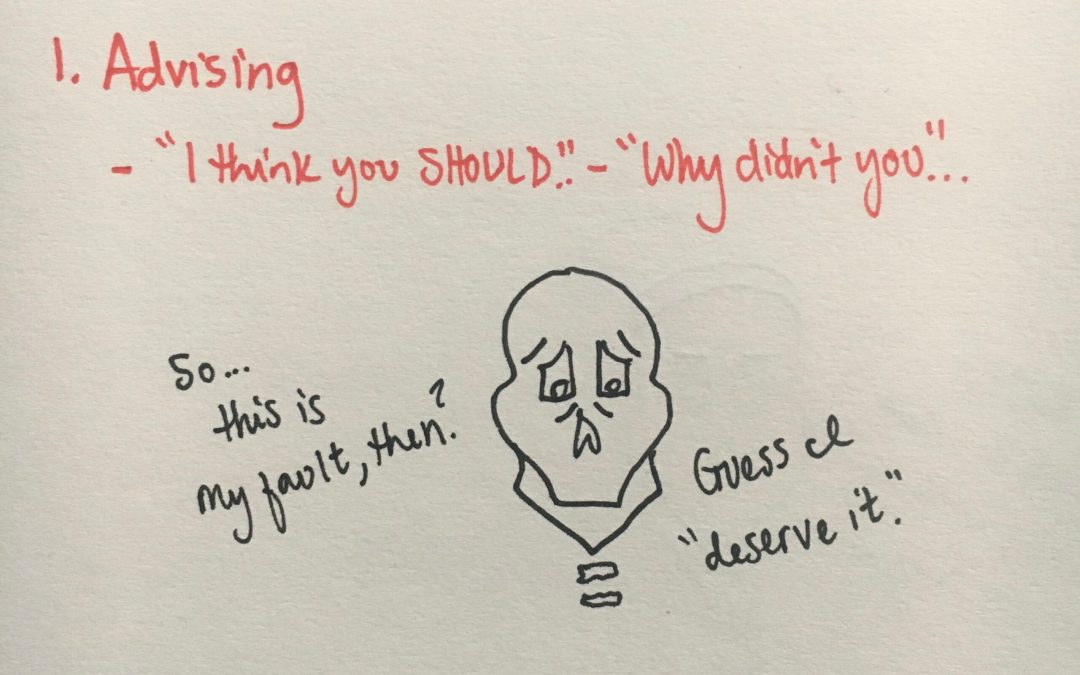Public Blog
Get yer transcripts for every public podcast episode here
AND check out the other words that come flowin from these research findings x rl figurings x keyboard fingerings.
Stay in Touch
Get all the updates straight to your inbox

3.12a. Transference, Projection, Monkey-barring, Displacement
This podcast episode explores various forms of transference in relationships and mental health, including projection, monkey-barring, and displacement. It discusses how these cognitive patterns can affect interpersonal dynamics and therapy outcomes. The episode emphasizes the importance of self-reflection and critical thinking in recognizing and addressing these patterns for improved emotional intelligence and relationship health.

3.11. Ten Destructive Responses that Set Off Trauma Defenses
This podcast episode explores ten destructive responses to avoid in sensitive conversations, based on NonViolent Communication principles. It discusses why people use these responses and their impact on relationships. The episode provides insights into improving communication skills, especially during stressful holiday interactions with family. It emphasizes the importance of empathy, active listening, and self-awareness in fostering healthier interpersonal dynamics.

3.10. Chronic deprivation, self-sabotage, psychosomatic illness, and abuse dynamics
This podcast episode explores the concept of chronic self-deprivation and its roots in childhood neglect. It discusses how unrecognized personal needs can lead to self-sabotage, psychosomatic illness, and codependency. The episode offers insights into breaking these patterns by identifying and fulfilling a comprehensive range of human needs, emphasizing the importance of self-care in trauma recovery and personal growth.

3.9b Ending Deprivation and Rehabbing yer Brain with NonViolent Communication
This podcast episode explores how NonViolent Communication (NVC) can be used as a tool for trauma recovery and personal growth. It discusses challenging toxic beliefs, identifying unmet needs, and the impact of self-neglect on mental health. The episode emphasizes the importance of self-awareness and fulfilling personal needs as key components in breaking cycles of trauma and depression.

3.9a NonViolent (Effective) Communication
This podcast episode explores NonViolent Communication (NVC) as a framework for effective communication in relationships and personal growth. It breaks down the four steps of NVC: separating observations from evaluations, identifying and owning feelings, recognizing underlying needs, and making requests. The episode discusses how this approach can help individuals with trauma histories improve their communication skills and understand their emotions and needs better.

3.8b Shitpologies (AKA non-apology apologies)
This podcast episode explores the concept of non-apology apologies and their impact on relationships. It discusses various types of ineffective apologies, such as “I’m sorry if,” “I’m sorry, you know I,” “I’m sorry but,” and “I’m sorry you.” The episode emphasizes the importance of taking responsibility, acknowledging the other person’s experience, and offering genuine amendments for repairing relationships. It also touches on the upcoming topic of nonviolent communication as a more effective way to handle conflicts and maintain healthy relationships.
Stay in Touch
Get all the updates straight to your inbox